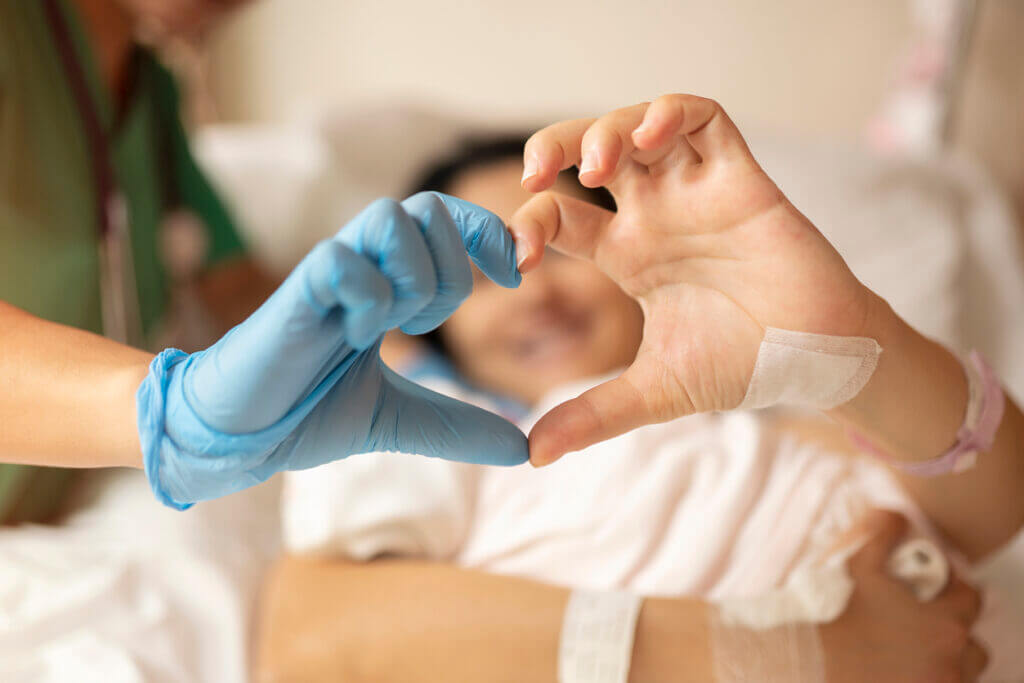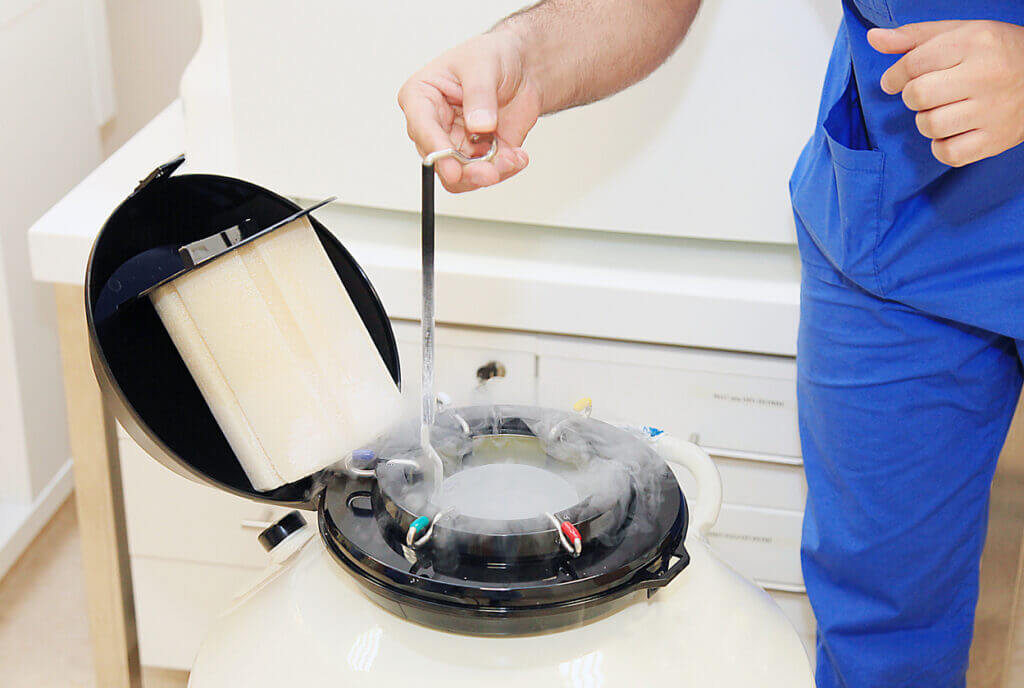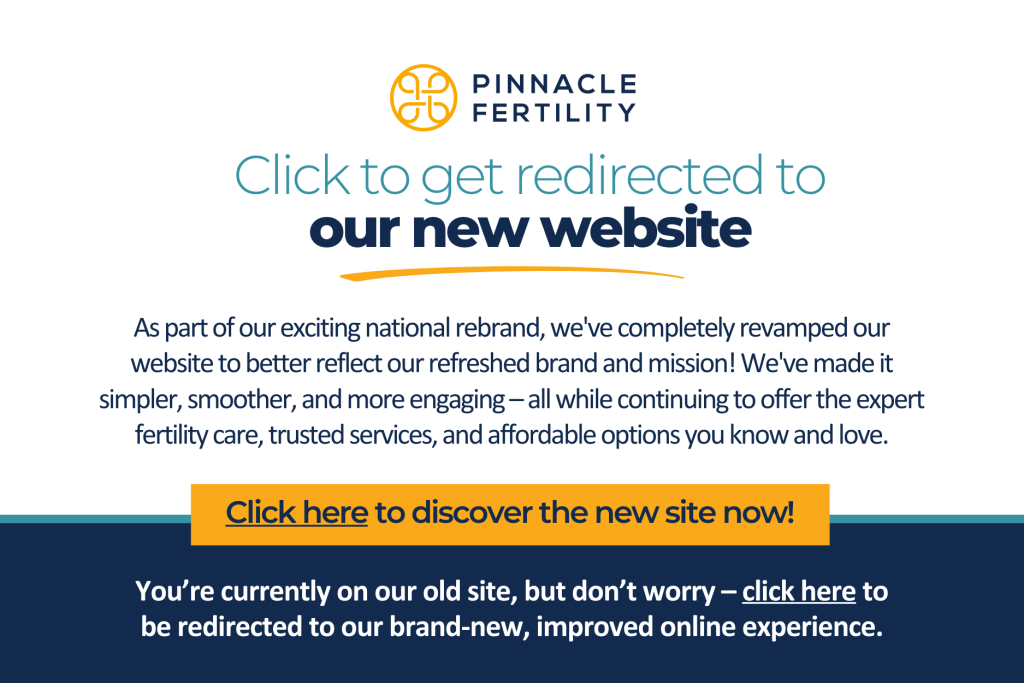Cancer can strike at any age, and the treatment options are often frightening. A battery of treatments can battle cancer effectively, efficiently, and rapidly. With personalized treatments available today, many are able to be cancer-free swiftly. But the effects of some treatments may linger, including impairment of your fertility. If you’re concerned about your fertility after a cancer diagnosis, we’re here to help.
When cancer and its treatments want to rob you of your fertility, ORM Fertility can help you preserve it.
The first step in combating a cancer diagnosis and the potential infertility it may cause is to arm yourself with the best information available.
What Is Oncofertility?

The term “oncofertility” was coined in 2006 to describe an emerging medical field that focused on oncology and fertility to give cancer patients and survivors the best chance of having a child of their own.
There are multiple options for treating cancer, such as chemotherapy, radiation, and surgery. These approaches can impair and harm a person’s reproductive system. Both adults and children may face the loss of their ability to reproduce in the aftermath of cancer treatments.
Cancer Treatments and Fertility
Many people confronted with a cancer diagnosis and treatment want to have their own children in the future. Knowing that cancer treatments can impact fertility, it’s vital to know the options available for preserving your fertility. In the case of children, parents can decide to preserve their child’s ability to reproduce for when they reach adulthood. It is important to talk to your reproductive specialist and cancer care team about how fertility may be affected before treatment begins.
Here are some major points regarding fertility you need to know when facing cancer.
#1: Cancer and Cancer Treatments Can Affect Fertility Regardless of Gender
Women produce all the eggs they will ever have in their lives BEFORE they are born. Starting before birth, the eggs will start to degenerate. This process continues throughout her life. The older a woman becomes, the fewer eggs remain in the ovaries. Cancer and the treatment it requires can leave a female infertile by permanently reducing the number of eggs in the ovaries, sometimes to zero, but there are ways to preserve your ability to have your biological child.
Unlike women, men produce sperm continuously all during their lives. Normally, men produce millions of sperm on a daily basis. As a result, some men are not changed significantly by cancer or its treatment and can reproduce naturally afterward. These men may be able to keep or restore average sperm production, depending on the person’s age, stage in life, type of cancer and the type and dose of treatment used, and any other health problems he may have. For those in which this is not the case, treatment may leave the male with lowered fertility.
#2: Cancer and Its Treatment Can Impact Fertility in Children
Just as it does in adults, different treatments for cancer in children can destroy the eggs in their ovaries or the sperm-producing cells in the testicles. This could result in some children and teenagers losing their fertility for a short time or sometimes permanently. This is why it is vital to ensure that preserving fertility is part of discussing your child’s cancer treatments.
#3: Fertility Preservation Options
For women and those with eggs and a uterus:

When you’re facing cancer treatments, options are available to ensure your ability to reproduce later when you’re cancer free and ready. Here are a few examples:
With both embryo cryopreservation and egg freezing, fertility is preserved to grow your family later through in vitro fertilization (IVF).
For men and those with sperm:
Although the ability to make healthy sperm may continue after some cancer treatments, sperm banking is a frequent choice for many men. This method of preserving fertility involves freezing semen samples which can later be thawed and used.
Frozen sperm can be banked for a very long time without causing damage to the sperm. Pregnancy can be attempted later by insemination (putting sperm directly into the uterus) or IVF (fertilizing eggs outside of the body). A 2019 study of the live birth rate following insemination with previously frozen sperm yielded these results:
The conclusion is obvious: long-term frozen storage of human sperm does not reduce the chance of having a baby when the storage is properly maintained.
For children:
Very young children who face cancer treatments may harvest, or bank, their ovarian or testicular tissue. When a child hits puberty, additional preservation options become available. Girls can choose egg freezing, and males can opt for sperm collection and storage.
Post-Treatment Options
There are options available for those who cannot conceive or carry a pregnancy following cancer treatments.
#4: Donor Egg and In Vitro Fertilization

Cancer treatments such as chemotherapy can permanently destroy all eggs remaining in the ovaries. Surgery to remove the ovaries is also sometimes needed. In these situations, a cancer survivor can choose to have a known or anonymous egg donor provide harvested eggs fertilized by their partner’s or a donor’s sperm to form embryos. The patient then carries the pregnancy after the embryo is transferred.
If the patient’s uterus has been damaged or removed, and they cannot carry the pregnancy, many patients find hope through surrogacy. Their retrieved eggs and the partner’s or donor’s sperm can be used to form embryos that are then transferred into a gestational surrogate’s uterus to carry the pregnancy.
#5: Donor Sperm
Cancer treatments can also leave a man’s testes permanently damaged and unable to produce sperm. Sperm harvested from a known or anonymous donor can be used to impregnate the patient’s female partner. Donor sperm can be used in intrauterine inseminations (IUI) or in vitro fertilization (IVF) cycles.
#6: Becoming a Parent through Adoption
If both partners have lost the ability to contribute to a pregnancy genetically, and gestational surrogacy isn’t a viable choice, parenthood is still possible through adoption. This is a legal process in which all parental rights and responsibilities of a child transfer from the biological parents to the adoptive parents. This option is open to those whose infertility results from childhood cancer and those who became infertile as adults.
Facing Oncofertility
In 2019, the National Cancer Institute reported over 16.5 million people in the U.S. are living with cancer. Estimates for 2022 place the new cancer cases in the U.S. at over 1.9 million. If you and your partner face a cancer diagnosis, don’t give up your dreams of parenthood. Schedule an appointment today with a reproductive specialist at ORM Fertility to discuss your options.




